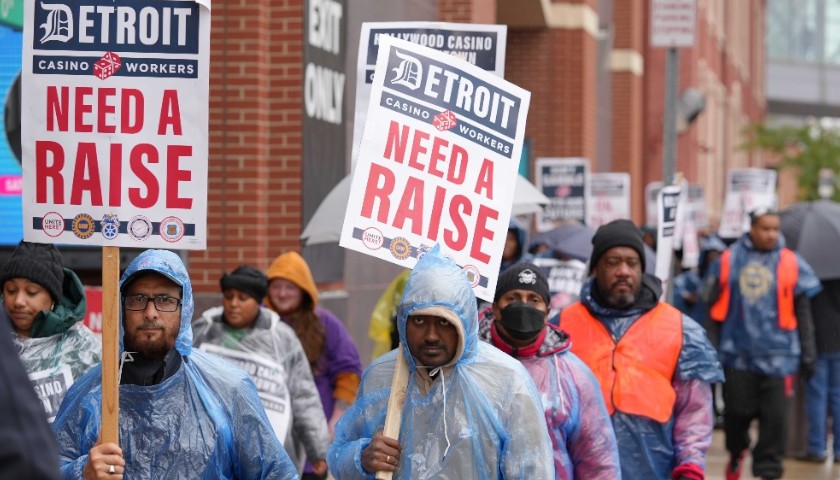by Scott McClallen
The Detroit Casino Council has reached a tentative agreement for a new five-year contract with MGM Grand Detroit, MotorCity Casino, and Hollywood Casino at Greektown after a 32-day strike.
The unions will continue to strike until the members ratify the proposed settlement.
The tentative agreement covering 3,700 employees includes the largest wage increases ever negotiated in the Detroit casino industry’s 23-year history (including an immediate 18% pay raise on average), no health care cost increases for employees, workload reductions and other job protections, first-time technology contract language and retirement increases.
A membership ratification vote will be scheduled soon with all five unions that comprise the Detroit Casino Council: UNITE HERE Local 24, UAW Local 7777, Teamsters Local 1038, Operating Engineers Local 324, and the Michigan Regional Council of Carpenters.
“Our strike showed the casino industry and the world just what Detroit’s casino workers are made of,” Teamsters Local 1038 member Tavera McCree, a valet cashier at Greektown Hollywood Casino, said in a statement. “This is a defining moment for workers in Detroit and nationwide. The gains we have made will change the lives of so many families who are living paycheck to paycheck. I would like to thank everyone who stood strong on the picket line to make this win possible.”
Workers started striking on Oct 17 seeking better pay and benefits after working through the pandemic.
“This historic agreement rewards the sacrifice that casino workers made throughout the pandemic,” Milledge McCaster, an engineer at Greektown Hollywood for 14 years and a member of the Operating Engineers Local 324, said in a statement. “We set a new standard with major wage increases and ground-breaking wins like first-ever workplace technology language and other job protections that will empower workers to have a say in the future of work in this industry.”
The tentative agreement includes reducing workloads in housekeeping and securing protections to guarantee advanced notification when new technology is introduced that impacts jobs, requires training for new jobs created by technology, and provides health care and severance pay for workers laid off because of new technology.
– – –
Scott McClallen is a staff writer covering Michigan and Minnesota for The Center Square. A graduate of Hillsdale College, his work has appeared on Forbes.com and FEE.org. Previously, he worked as a financial analyst at Pepsi. In 2021, he published a book on technology and privacy. He co-hosts the weekly Michigan in Focus podcast.
Photo “Workers on Strike” by UAW International Union.







